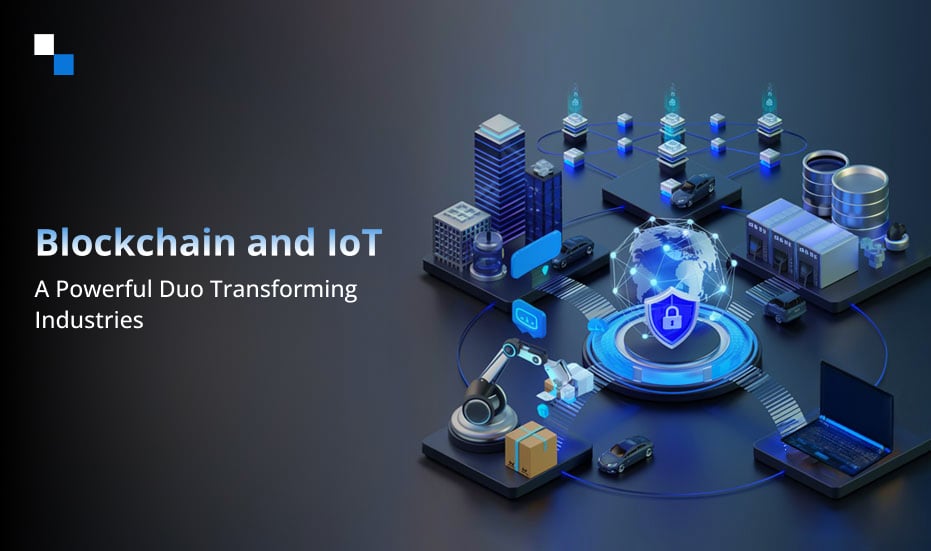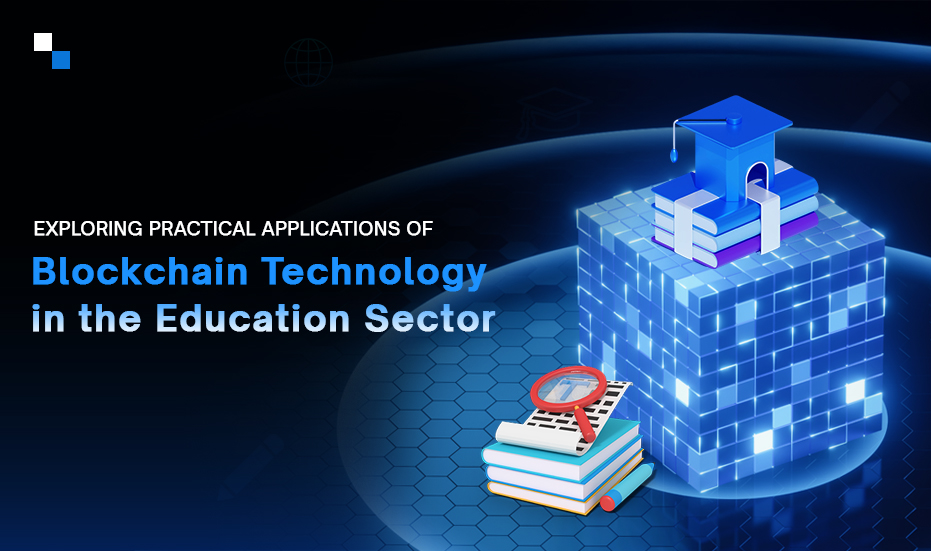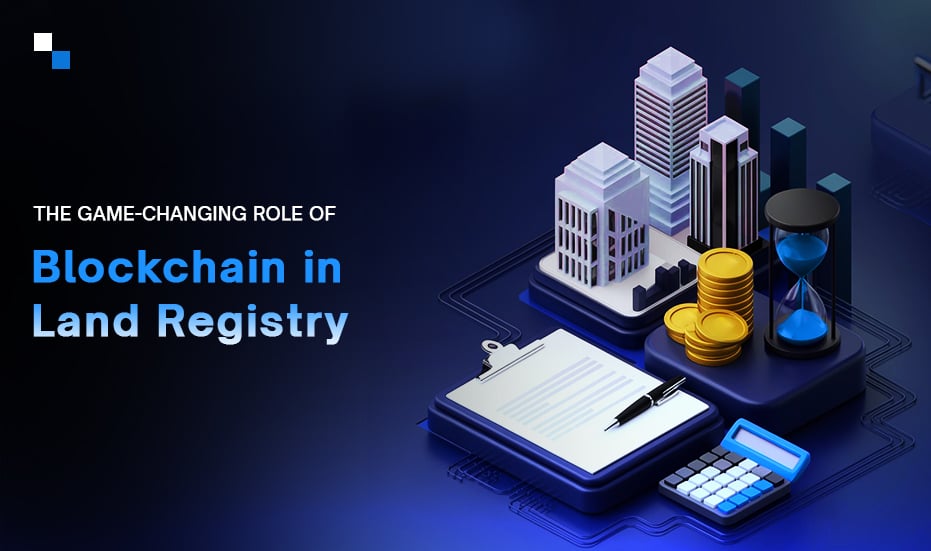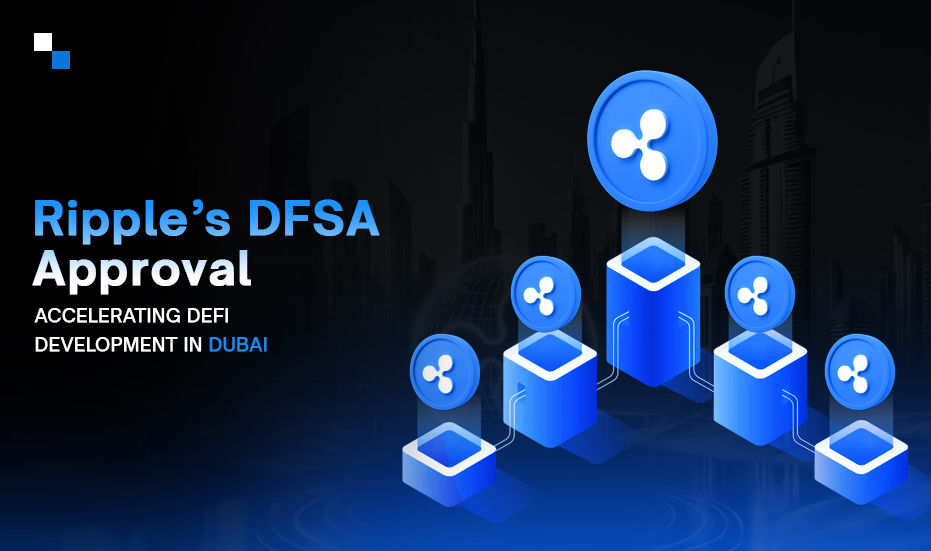
The End of IPO Barriers: Tokenized Equity is Your Ticket to Massive Gains
February 21, 2025
Blockchain Cyber Security- The Ultimate Shield for Digital Ecosystem
February 21, 2025All technological advancements in the digital world aim to be ‘groundbreaking,’ however only a few truly earn that distinction, and IoT (Internet of Things) is one of them. While the proliferation of IoT is massive, its security vulnerabilities cannot be overlooked. Data flows through various devices and integrated solutions; hence, ensuring its safety becomes complicated. This is where blockchain steps in to transform the game. Blockchain, the underlying tech behind cryptocurrencies like Bitcoin, verifies and secures the recorded data processed by ‘smart machines’ in the IoT. Perhaps this is why the future of IoT and blockchain looks promising.
According to GrandViewResearch, the global blockchain IoT market size was USD 351.9 million in 2022 and is expected to grow at a CAGR of 58.2% from 2023 to 2030. It’s an extraordinary growth trajectory for the years ahead.
As these technologies perfectly complement each other, blockchain IoT use cases are also expanding, ranging from smart cities to retail, and agriculture to supply chains. In this blog, we will explore the list of blockchain IoT use cases you should watch in 2025 and beyond.
Explore the List of Blockchain IoT Use Cases
The following are the top blockchain IoT use cases that showcase the power of these innovative technologies across various domains. Take a look-
1. Supply Chain Tracking
Monitoring and tracking goods throughout the supply chain has been a longstanding challenge for retailers, manufacturers, and other participants. IoT and blockchain integration can help resolve this challenge.
IoT devices, such as GPS trackers, RFID tags, and smart sensors, can capture real-time time of the location, temperature, condition, and movement of goods. Blockchain records this IoT-generated data on a decentralized, immutable ledger, which ensures that this data is immutable and accessible to all stakeholders. Parties can check the same ledger to learn about the movement of the goods. This transparency gives a strong reason to bet on this powerful duo.
2. Autonomous Vehicles
Autonomous vehicles are no longer a faraway vision as companies like Tesla, Google, and their competitors have already developed models with self-driving capabilities. Technologies like IoT and blockchain are supporting this innovative idea of driverless vehicles. IoT-enabled sensors are used in automated vehicles to collect real-time data on traffic conditions, detect obstacles, monitor vehicle performance, and enhance navigation. These sensors also support autonomous decision-making that helps vehicles adjust speed, avoid collisions, and optimize routes based on environmental conditions. All the data captured through sensors needs to be shared with other vehicles, infrastructure, and service providers. Blockchain ensures that this data is secure, tamper-proof, and accessible to only authorized parties.
3. Agriculture
IoT and blockchain integration promote transparency, safety, and efficiency in the agriculture sector. Traditional food supply chains lack visibility, making it difficult to track contamination sources. With the IoT and blockchain integration, every agricultural product gets a digital identity that records its journey from farm to retailer. This eliminates third-party interference, enhances trust, and provides real-time data on quality, origin, and storage conditions. Consumers gain confidence in the food they buy, while farmers and suppliers benefit from improved efficiency and reduced fraud. This technology-driven approach ensures a safer, more sustainable food system for the future.
4. Energy Trading
The energy sector is also experiencing a transition towards decentralization with blockchain and IoT-enabled P2P energy trading. IoT devices monitor real-time energy consumption and production and provide accurate data on energy availability and demand. This data is completely secure and immutable on the blockchain. Smart contracts automate the execution of energy trades based on predefined conditions. For instance, in microgrids, prosumers can sell excess energy directly to consumers, optimizing local energy distribution and promoting the use of renewable sources. This integration fosters a more resilient and sustainable energy ecosystem.
5. Retail
Brands in different sectors, ranging from health to fashion and electronics industry, are seeking ways to ensure their brand reputation remains unharmed through scammers selling fake versions of their products. In such a case, adopting IoT and blockchain integration would be a smart move.
IoT devices, such as smart tags and sensors monitor products in real-time and capture data on their location and condition. The data is then recorded on blockchain, which helps verify the authenticity of products and give consumers confidence in their purchases. Additionally, the data based on customer preferences and behavior helps retailers use this information to offer personalized recommendations and promotions.
6. Smart Homes
IoT-enabled smart devices make life easier as they allow an individual to manage their security system remotely from the smartphone. But at the same time, IoT devices in smart homes are vulnerable to hacking as they follow a traditional centralized approach to exchange information, which raises security and data ownership issues. This problem can be addressed by integrating blockchain for IoT devices. Blockchain can provide a secure framework for device authentication and data encryption. This technology helps manage access to smart home devices and ensures that only authorized users can control them.

Top Companies Leveraging The Power of IoT and Blockchain
The following are the top companies harnessing the combined power of IoT and blockchain to drive innovation, enhance security, and streamline operations.
-
Chronicled
Chronicled, Inc. is a San Francisco-based technology company with expertise in IoT and blockchain that helps make supply chain solutions smart and secure. The company secures IoT device identities, data, and event logs and automates IoT-dependent business logic through smart contracts. Chronicled is also a founding member of the Trusted IoT Alliance, dedicated to developing open-source tools and standards that bridge IoT and blockchain ecosystems and offer maximum value to businesses.
-
Helium
Helium Network is a decentralized, blockchain-powered wireless network designed for IoT devices. It allows low-power IoT devices, such as smart sensors and trackers, to communicate over long-range, low-power wireless connections (LoRaWAN) without relying on traditional cellular networks. It is the decentralized machine network that is revolutionizing decentralized wireless communication and expanding global IoT connectivity to a great extent.
-
Filament
Founded in 2012, Filament is a leading provider of blockchain-powered security solutions for IoT applications. Its proprietary blockchain suite, Blocklet, enhances data security across IoT devices used in energy, construction, manufacturing, and transportation while ensuring trust, transparency, and resilience in connected ecosystems.
-
ArcTouch
As a digital product development company based in San Francisco, ArcTouch specializes in creating mobile apps, connected experiences, and IoT solutions. Their expertise extends to developing decentralized applications (DApps) that integrate with IoT devices to enhance security and functionality. ArcTouch has built connected, smart solutions encompassing smart TVs, voice assistants, and wearables.
-
IOTA
The last on our list is IOTA, which considers its Tangle network as the “backbone of IoT.” IOTA leverages distributed ledger technology (DLT) to enable tamper-proof data, feeless microtransactions, and minimal resource consumption. Its Industry Marketplace also facilitates automated trading of data, goods, and services within the industrial IoT ecosystem. Beyond IoT, IOTA’s DLT also offers solutions for global trade, supply chains, and customs and border management.
Conclusion
Blockchain and IoT come together to provide solutions to some of the most pressing challenges in today’s digital world. From smart cities and healthcare to agriculture and retail, the blockchain IoT use cases are vast and varied. Businesses and governments must embrace these technologies to stay competitive and address global challenges. In this journey of transitioning to IoT and blockchain, Antier can be the right digital partner.
With expertise in smart contract development, decentralized applications (dApps), tokenization, and secure IoT integrations, Antier unlocks new possibilities for businesses worldwide across various industries. As a leading blockchain development company, we have assisted numerous businesses in achieving decentralization and security in their ecosystem. When it comes to utilizing blockchain for IoT, our team is packed with the best talents to work on your project. Avail our consulting and development services today to empower enterprises with blockchain and IoT-based solutions.



